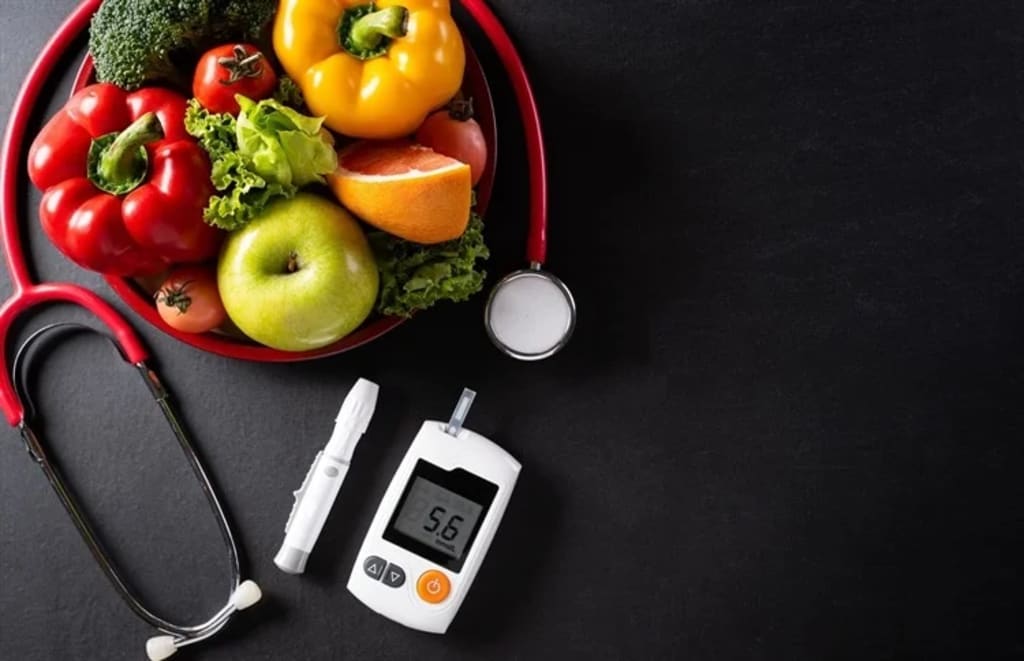Substituting processed or red meat with plant-based foods may reduce risk of type 2 diabetes
n a recent study published in Scientific Reports, researchers assess the association between moderate-level partial replacement of processed and red meat intake with equivalent proportions of plant-based foods such as fruits, vegetables, cereals, and legumes, and the risk of incident type 2 diabetes (T2D) in Finnish individuals.

n a recent study published in Scientific Reports, researchers assess the association between moderate-level partial replacement of processed and red meat intake with equivalent proportions of plant-based foods such as fruits, vegetables, cereals, and legumes, and the risk of incident type 2 diabetes (T2D) in Finnish individuals.The impact of diet on T2D
Diabetes mellitus poses considerable health risks, and its prevalence is increasing globally each day. Modifiable risk factors of diabetes include diet, physical activity, and obesity.
Animal-based diets that are rich in processed and/or red meat are environmentally unsustainable and increase the risk of new-onset T2D. Comparatively, plant-based diets, which are rich in fiber, protect against diabetes. To date, data on the impact of dietary transitions from animal- to plant-based diets on the risk of incident T2D are limited.
About the study
In the present study, researchers investigate whether a partial transition from animal- to plant-based diets consisting of fruits, vegetables, legumes, cereals, and nuts could lower the risk of T2D among Finland residents.
Data were obtained from cohorts of five studies comprising 41,662 Finnish individuals who were 25 years and older, among whom 22% were female. The cohorts were selected from the Alpha-Tocopherol, β-carotene Cancer Prevention (ATBC) study comprising male smokers, 2000 Health survey-based study, Helsinki birth cohort study (HBCS), nationwide FINRISK 2012 study, and Dietary, Lifestyle, and Genetic Determinants of Obesity and Metabolic Syndrome 2007 (DIL-GOM 2007) study.
Participants’ health was assessed using health measures, serological assessments of serum samples, and self-documented questionnaires, with data linked to the health registries of Finland. Individuals with T2D at study initiation were excluded from all analyses. The individuals were followed up for a median of 11 years, during which 1,750 cases of new-onset T2D were reported.
Diets were evaluated using validated food frequency questionnaires (FFQ). In the diet transition models, 100 and 50 grams weekly intake of red and processed meat, respectively, were replaced with equivalent quantities of plant-based alternatives. Cox proportional hazards multivariate modelling and random effects modelling were performed to estimate the cohort-specific pooled hazard ratios (HR).
Related Stories
Bariatric surgery may be an effective treatment for obese people at risk of diabetes, peripheral neuropathy
What is the nutritional impact of switching to plant-based foods that mimic animal-source meat and dairy?
Fasting diet could be the key to reducing the risk of type 2 diabetes
Data were adjusted for socioeconomic status, age, lifestyle factors, medical history, education, body mass index (BMI), smoking habits, blood pressure, leisure-time physical activity, serological cholesterol levels, alcohol consumption, hormone replacement therapy (for females), and the intake of sugary beverages, coffee, and dairy products.
The mean regular food and caloric intake were determined using the national food composition database of Finland. T2D was detected by linking participant data to national administrative registries on reimbursement for anti-diabetic medication costs, medication sales using anatomical therapeutic chemical (ATC) codes A10 onward, hospitalizations, or death cause based on international classification of diseases, tenth revision (ICD-10) codes E11 to E14.
Results
Slightly significant decreases in new-onset T2D risks were observed among males by partially substituting processed meat products like cold cuts and sausages, as well as red meat including lamb, game, pork, and beef with fruits, with HR values of 0.99 and 0.98, respectively. Replacing meat with wheat, barley, oat, and rye cereals yielded similar results, with HR values of 0.97 and 0.99 for red meat and processed meat, respectively.
Additionally, partially substituting processed meat with plant-based food combinations significantly lowered T2D risks with an HR value of 0.99. However, replacing meat intake with that of vegetables and/or legumes did not yield similar findings. The observations among females were comparable but not significant.
Among males, doubling the replacement quantities to 200 and 100 grams weekly of red and processed meat, respectively, by equivalent amounts of cereals or fruits led to greater reductions in T2D risks.
The protective effect of fruits against T2D may be due to the rich polyphenol and fiber content in fruits, as well as the improved maintenance of body weight associated with a high consumption of fruits. High whole grain intake is associated with lower fasting insulin levels and improved insulin sensitivity, which was likely regulated by the high fiber content in whole grains and constituent vitamins, minerals, and phytochemicals.
The stronger relationships between plant-based food intake and lowering of T2D risk among males could be due to the higher meat consumption and lower plant-based food consumption tendencies among men. In addition, 78% of the study participants were male; therefore, the associations could have been of higher significance among men.
Conclusions
Overall, the study findings showed that even minor but easily implementable shifts toward plant-based and environmentally sustainable diets could lower the risk of T2D, especially among males.





Comments
There are no comments for this story
Be the first to respond and start the conversation.